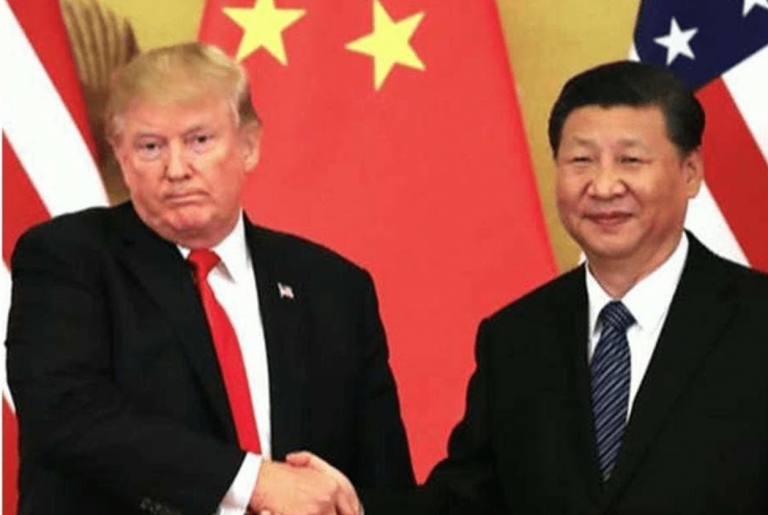Washington could be on track for renewed dialogue with the Chinese government as presidents Donald Trump and Xi Jinping meet at the G-20 summit in Japan, according to insiders “familiar with the situation” cited in a joint report by Politco and the Hong Kong-based South China Morning Post.
The outlook is somewhat counterintuitive, given the recent escalation of the Sino-U.S. trade war this May. However, the three sources, two in the United States and one in China, told journalists that the two countries had planned to announce a truce to the conflict, which could pave the way for more talks.
Since spring 2018, the Trump administration has punished Chinese trade practices it condemns as exploitative and unfair by levying tariffs on hundreds of billions of dollars’ worth of Chinese goods. At the last G-20 summit held last December in Argentina, Trump and Xi agreed to a months-long “cease-fire” in the trade war.
Multiple rounds of negotiations held in Beijing and Washington appeared to yield progress until the Chinese side suddenly backtracked on multiple points in early May. In response, Trump announced more tariffs and threatened to extend duties to virtually all of China’s exports. The U.S. government also strengthened its forays into areas of contention, such as finance and human rights.
According to one source “with knowledge of the deal,” Xi had agreed to meet with Trump in Osaka, Japan, where the current G20 summit is being held, on condition that the American president agrees to a second hold on the trade war. The U.S. and Chinese leaders are expected to meet on June 29, the second day of the summit.
Success
You are now signed up for our newsletter
Success
Check your email to complete sign up
Two of the sources said that Trump’s truce came with the caveat that a trade deal would be reached within six months. The United States currently imposes 25 percent tariffs on US$250 billion, or around half of Chinese exports.
The insider reports clash with apparent trends in the Sino-U.S. relationship, which has seen the U.S. government increase its criticism of abuses under the Chinese Communist Party (CCP) regime, while Beijing charges the Trump administration with hegemony and doubles down on anti-American and ideologically “red” themes in its propaganda.
On June 21, U.S. Secretary of State Mike Pompeo rebuked China for its widespread human rights violations, saying “that the intense persecution of many faiths — Falun Gong practitioners, Christians, and Tibetan Buddhism among them — is the norm,” and that “the Chinese Communist Party has exhibited extreme hostility to all religious faiths since its founding.”

U.S. Secretary of State Mike Pompeo recently criticized the CCP for its persecution of religion. (Image: Screenshot / YouTube)
In China, President Xi, who is also Communist Party head, made statements to the CCP Politburo that were interpreted to suggest that he won’t agree to major concessions at the summit. According to a June 25 report by The Epoch Times, Xi is not in a position to back down when he meets Trump, as he must avoid the possibility of criticism from rivals within the Party.
According to political risk consultancy SinoInsider, Xi Jinping has resorted to the resurrection of hardline leftism reminiscent of that practiced by founding communist Chinese leader Mao Zedong in order to consolidate his authority over the Party. But this ideological line has proven unwieldy as Xi struggles with China’s growing economic and social crises; it also gave Xi’s rivals an opening to sabotage the initial series of U.S.-China trade negotiations earlier this year.
“CCP interest groups are bound to ‘weaponize’ Party orthodoxy against Xi by forcing him to make hardline, ‘politically correct’ moves instead of utilizing flexible strategies to resolve domestic and foreign issues,” SinoInsider analyzed on June 21.
President Trump may be aware of the difficulties Xi faces in negotiations, SinoInsider wrote, which might explain the divide between his nuanced personal treatment of Xi and the toughening stance his administration is taking against the CCP.
On June 7, while in St. Petersburg, Xi reciprocated Trump’s repeated avowals of a good relationship between the presidents, saying: “Trump is my friend.”
Follow us on Twitter or subscribe to our weekly email














